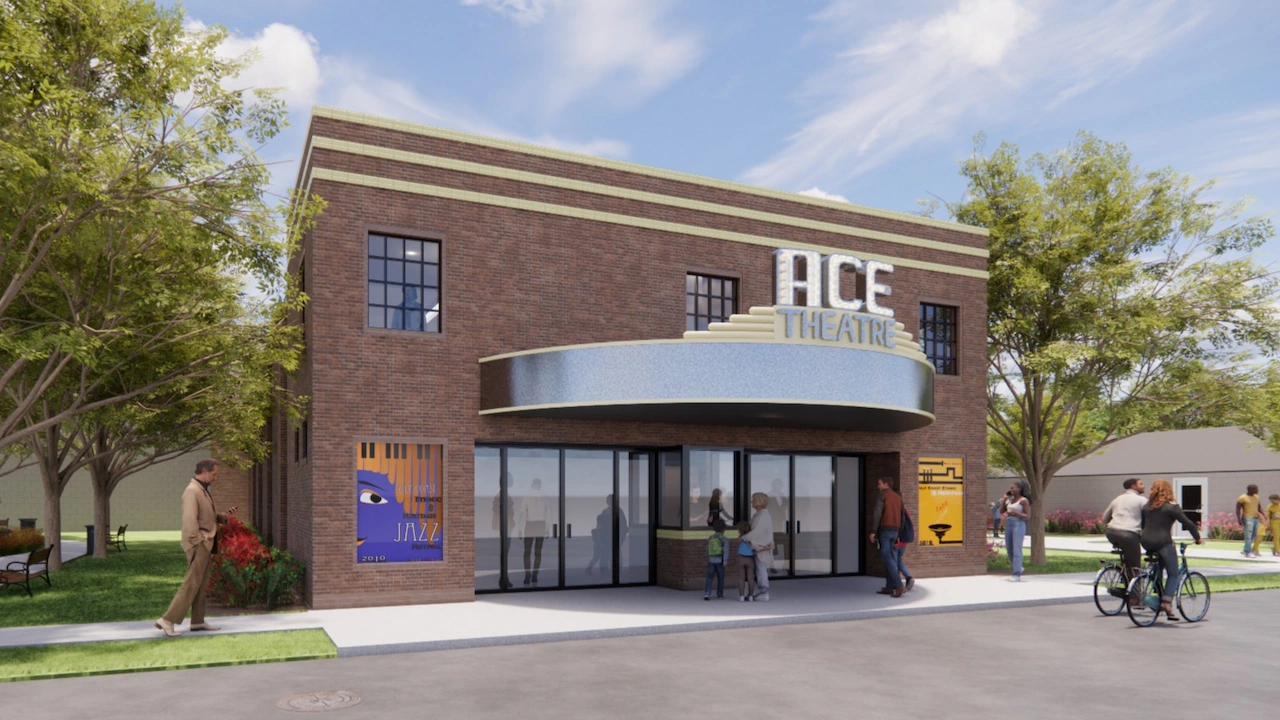Copyright AL.com

As Mobile’s historic Excelsior Band prepares to present a rare opportunity to hear its music in a concert setting, work is afoot to give the 142-year-old ensemble a permanent home and showplace. On Sunday, Nov. 16, Excelsior Band Preservation Inc. – a nonprofit created to support and sustain the group – will present a fundraising concert titled “Keep the Music Playing!” Proceeds from the event at Byrne Memorial Hall on the Spring Hill College campus will support both Excelsior Band Preservation and the Jazz Studio, a long-running jazz education program. The inaugural fundraiser is a key step in the effort to fortify the group’s long but fragile legacy. It builds on the fact that in 2022 the group received one of the nation’s highest cultural honors, being named as a National Heritage Fellowship honoree by the National Fellowship of the Arts. The $25,000 award that came with it helped launch Excelsior Band Preservation, among other things. The ensemble is almost ubiquitous in Mobile: It plays at civic events, conventions, private gatherings and, of course, Mardi Gras parades and other Carnival-season events. But it’s also a group that faces recruitment challenges. The work is demanding, and there’s not a huge pool of young jazz players to draw on. The careers of Excelsior players can be astoundingly long. Bandleader Hosea London cited trombonist Frank McKinley Ponquinette as an example: Ponquinette was born in 1928. When he joined Excelsior in 1944 at age 16, he was its youngest member. He was its oldest living member when he died at 97 on Sept. 13. But as players with decades of experience come to the end of their careers, there has to be a next generation, and another after that. Bandleader Hosea London draws a clear lesson from that: For Excelsior to survive, it has to be an educational institution as well as a performing one. “Eventually, you have no choice except to prepare for the future for the band,” he said. “You know, it doesn’t take care of itself. It’s a tradition that you have to teach, and the only way you can actually do that is, you have to be in the band. “You have to actually be in the band to learn it, because there’s no sheet music that we can give to somebody and say, ‘Okay, this is, this is what you’re gonna do,’” he said. “It doesn’t work. It doesn’t really work like this. Everybody that ever got in the band, including me, you learn from being in the band.” London said, only half-jokingly, that you can be in Excelsior for 25 years and still be considered a novice. “Sometimes it’s not all about people that can play music,” he said, “because I know plenty of people that can play music. But it’s a culture. The Excelsior Band is actually a culture. And what matters so much is character.” To get all that across, it would help to have a home. A place to showcase artifacts from the group’s extensive history. A place to teach. A place to perform sit-down concerts. Some office space. It appears the band may get that sooner rather than later, thanks to plans to revitalize the defunct Ace Theatre as part of a growing civil rights heritage district. During segregation the Ace was one of a series of theaters that catered to Black patrons along a thriving business corridor known as “The Avenue.” The Ace isn’t far from the Historic Avenue Cultural Center, formerly a segregation-era library, and it’s just across the street from Ison Clemon Civil Rights Memorial Park, which the city dedicated in January. No one is saying the Ace will be set aside solely for Excelsior’s use, and London himself says he hopes it will present concerts by other local ensembles and celebrate other legacies as well, such as that of Mobile-born bandleader James Reese Europe. But the effort to restore the Ace is well under way, and there’s definitely interest in making it a showplace for Excelsior and its history. “We don’t have a lot of details nailed down but what I can tell you is that if we’re able to work this out, it will be the home of the Excelsior Band,” said Mobile County Commissioner Merceria Ludgood. Plans for the Ace Theatre itself are well beyond the discussion phase. In April, the commission approved a project development agreement with Porchlight LLC. Under the terms of that deal, Porchlight will take ownership of the Ace building at 501 Congress Street and several adjacent parcels. Porchlight will conduct renovations and the county will then lease the theater back from Porchlight, with an additional “incentive payment in the form of a $500,000 forgiveable loan.” Six years in, the county will be able to exercise an option to purchase the property. Ludgood said the complexity of the arrangements is partly because they were designed to help Porchlight secure historic development tax credits. Porchlight is a firm founded by Mobile builder Mike Rogers and Birmingham-based developer Brian Giattina. Porchlight’s John Ruzic said that the firm has received approval for state and federal tax credits and is working with Birmingham-based nonprofit Opportunity Alabama to leverage them to best effect. “They’ve been wildly helpful in structuring that capital stack and that financing piece,” he said. “This is a public-private partnership and to make it work, it has to be a true collaboration,” said Ruzic. Entities that deserve credit include the Alabama Historical Commission and the National Park Service for the stewardship of the credits, he said. “The plans as of right now allow for a space for the Excelsior band to show a lot of the memorabilia,” he said. “And then more generally, just the history of jazz in Mobile.” The Ace was built as a 500-seat movie theater. Ruzic said there aren’t many fixtures of those days left, and not much documentation. So Porchlight’s architects and designers are using what little is left, and what they’ve been able to find out about comparable theaters of the time, to make the renovations as historically accurate as possible. Ruzic said that another partner, David Schneider of Anniston-based Schneider Historic Preservation, found the only photo they’ve come across that shows the theater’s original façade. Ironically, it ran in the Mobile Press in 1976 in a regular feature calling out “Eyesores.” But that goes to show how long the theater has been waiting for its next act. Porchlight isn’t remaking the Ace purely as a movie theater: It’ll be a multipurpose space, suitable for concerts, screenings and other gatherings. Ruzic credited elizabet elliott of the Alabama Contemporary Art Center with urging designers to allow room for dancing. (Not incidentally, ACAC is collecting people’s memories of the Ace, whether they worked there, saw shows or otherwise experienced the venue in its heyday. For details, visit www.alabamacontemporary.org/programs/ace.) The adjacent properties include a set of small, 1940s-vintage apartments. “Those are going to become some administrative space for Excelsior as well as a place for them to potentially [use as] education space,” said Ruzic. “Both them and Commissioner Ludgood and we are very excited about the opportunity that they may have to bring in some children from the immediate area and engage with them on music education,” Ruzic said. “The Excelsior Band is still doing traditional tunes from the ‘20s, ‘30s and 40s,” said London. “So children definitely don’t know those, right? So we have to take time to really teach them.” Ruzic said that the financing and legal agreements are rapidly being finalized, and it won’t be long before Porchlight is in a position to finalize its design and get down to work in early 2026. It’s possible the renewed Ace will be ready for Excelsior in 12 to 18 months, he said. “They’re a huge cultural ambassador for Mobile,” said Ruzic. “I don’t know that they always receive the appreciation they need nor have they ever really had a big fundraising structure in place. So I’m hoping that, like, and this type of exposure and kind of finally having a home really gets them to a place for people start to remember them when they are deciding how they want to donate their money.”



